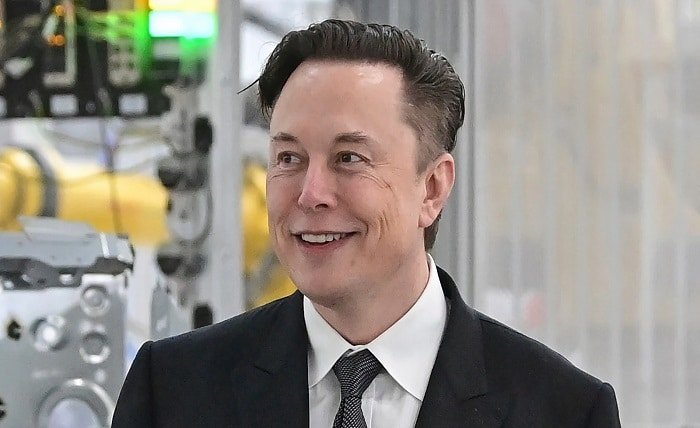Political Leaders Invited Elon Musk to Set Up Tesla Plants in Their States

In recent years, the name Elon Musk has become synonymous with technological innovation and groundbreaking ventures. As the CEO of Tesla, a renowned electric vehicle manufacturer, Musk has revolutionized the automotive industry and garnered global attention. The allure of Tesla plants and the potential economic benefits they bring have prompted political leaders across various states to extend invitations to Musk. This article explores the reasons behind these invitations and the implications of having Tesla plants in different states.
The Impact of Elon Musk
Elon Musk’s impact on various industries, including renewable energy, space exploration, and transportation, cannot be overstated. With Tesla at the forefront of electric vehicle manufacturing, Musk has spearheaded the development of sustainable transportation solutions. His visionary approach and ambitious goals have positioned Tesla as a market leader and a symbol of technological progress.
The Attraction of Tesla Plants
Tesla plants offer immense benefits to the states where they are established. These plants serve as manufacturing hubs for electric vehicles, batteries, and other clean energy products. They create job opportunities, stimulate economic growth, and attract investments. Additionally, the presence of Tesla plants signals a commitment to sustainability and environmental stewardship, aligning with the global shift towards a greener future.
Political Leaders’ Invitation to Elon Musk
Recognizing the transformative potential of Tesla plants, political leaders have actively sought to invite Elon Musk to set up operations in their states. The invitation is often a result of strategic planning and a desire to capitalize on the economic and environmental advantages that come with hosting a Tesla plant. By extending these invitations, political leaders aim to attract high-tech industries, create employment opportunities, and bolster their states’ economies.
Benefits for States
The establishment of Tesla plants brings numerous benefits to states. Firstly, it stimulates economic growth by attracting investments and creating jobs. Tesla’s presence can catalyze the development of local supply chains, fostering entrepreneurship and creating opportunities for small businesses. Additionally, the influx of skilled professionals and engineers associated with Tesla plants contributes to the state’s talent pool, driving innovation and competitiveness.
Economic Growth and Job Creation
Tesla plants have a substantial impact on local economies. Beyond the direct employment opportunities provided by the plants themselves, the ripple effect is felt throughout the supply chain and the broader community. Supporting industries, such as logistics, maintenance, and research, also experience growth, leading to increased economic activity. The tax revenue generated from these operations further bolsters public infrastructure and services.
Environmental Considerations
One of the key drivers behind the invitation to Tesla plants is the environmental benefits they offer. With the urgent need to combat climate change, transitioning to sustainable transportation is paramount. Tesla’s electric vehicles produce zero tailpipe emissions, reducing greenhouse gas emissions and improving air quality. By welcoming Tesla plants, states demonstrate their commitment to sustainability and contribute to the global efforts to mitigate climate change.
Infrastructure Development
Hosting a Tesla plant necessitates robust infrastructure development. Adequate transportation networks, power supply, and charging infrastructure are vital for the efficient operation of these plants. To accommodate the increased demand for electricity, states must invest in renewable energy sources and grid infrastructure upgrades. These infrastructure developments not only benefit Tesla but also lay the foundation for future technological advancements and attract other high-tech industries.
Technological Advancements
The presence of Tesla plants fosters technological advancements within the state. Collaboration between Tesla and local universities, research institutions, and suppliers promotes knowledge exchange and innovation. The spillover effects of these partnerships can lead to breakthroughs in battery technology, renewable energy, and autonomous driving systems. By embracing Tesla plants, states position themselves as hubs of technological innovation, attracting further investment and talent.
Local Community Engagement
Elon Musk and Tesla prioritize community engagement and philanthropic initiatives. When Tesla plants are established, they often engage with local communities through job fairs, educational programs, and infrastructure development. By partnering with schools and universities, Tesla plants contribute to STEM education and empower the next generation of engineers and innovators. These initiatives enhance the quality of life for residents and foster a positive relationship between Tesla and the local community.
Challenges and Concerns
While the invitation to Elon Musk and Tesla plants presents numerous opportunities, it also raises challenges and concerns. Some critics argue that the incentives offered to attract Tesla may strain state budgets or disrupt existing industries. Others raise concerns about the demand for natural resources, such as water and minerals, required for manufacturing electric vehicles. Balancing these considerations is crucial to ensure sustainable growth and address any potential drawbacks.
Conclusion
Political leaders inviting Elon Musk to set up Tesla plants in their states recognize the transformative potential of these operations. The economic growth, job creation, environmental benefits, and technological advancements associated with Tesla plants make them highly sought after. By embracing sustainable transportation solutions and engaging with local communities, states position themselves at the forefront of innovation and environmental stewardship. The invitation to Elon Musk and the establishment of Tesla plants signify a commitment to a greener future and a prosperous economy.




